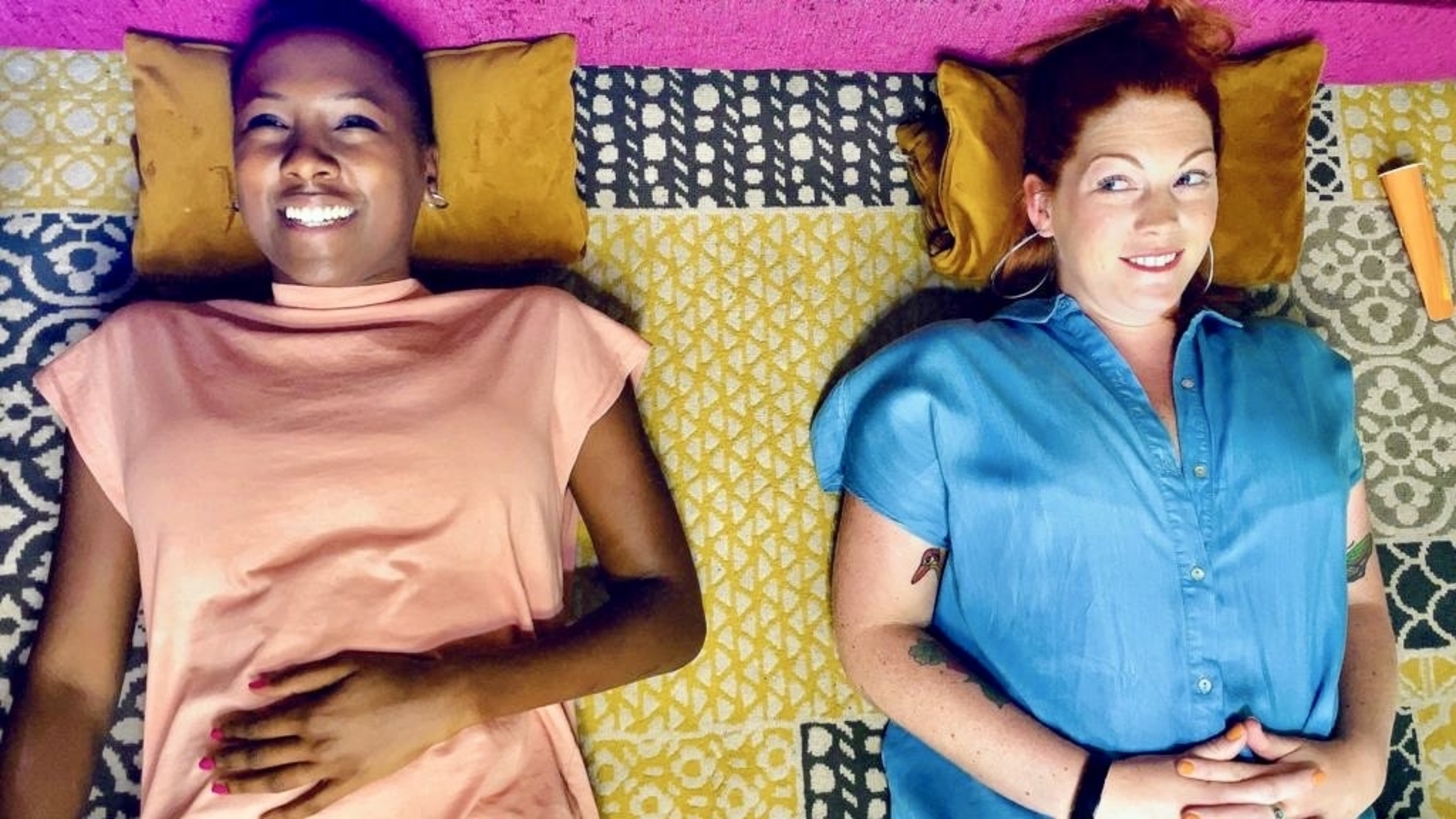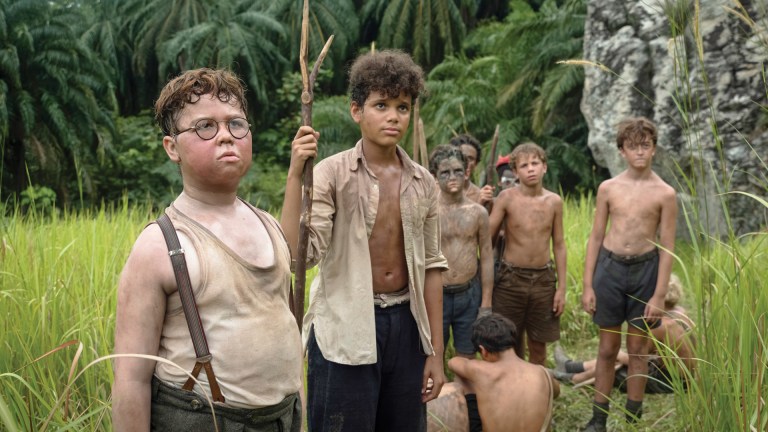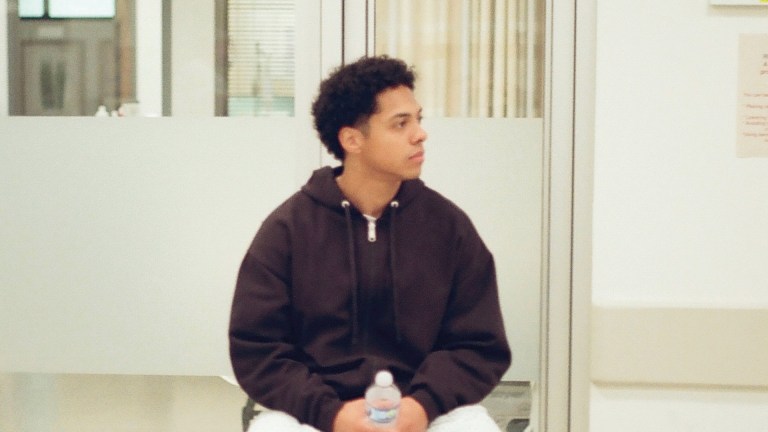As a queer black women these are things I am conscious of constantly
Anouka was selected as one of The Big Issue‘s inaugural 100 Changemakers in 2019 for bringing the Black Panther Challenge to London. Her efforts saw hundreds of young people from disadvantaged backgrounds attend a screening of Black Panther in Peckham, followed by a Q&A with Anouka and top actor Paapa Essiedu (recently seen with Michaela Coel in I May Destroy You) offering inspiration and expanded horizons alongside entertainment.
Anouka said at the time: “I’m especially excited about showing young black people that they can be the hero too.”
As Anouka continues her quest to bring poetry to a wider audience and combine acting, writing and activism, we caught up with her to ask about her lockdown creation…
How has your lockdown been?
Good, thanks for asking. It’s all been very weird. But I’ve felt very fortunate and the warm weather has helped.
As a writer and performer, what have been the challenges and creative bonuses of lockdown – and how and when did you and Grace decide to channel this into a film?
Advertising helps fund Big Issue’s mission to end poverty
I was in the middle of filming a TV show and due to do my debut play HEART at The Kiln theatre during Lockdown. So when I realised none of that was going to happen I was like, I need to do something!
I like being busy. So I looked to writing. Poetry, plays… and then I saw a tweet about the BBC’s ‘Culture In Quarantine’ commissions and a friend texted me saying I should apply.
Was this a piece you already planned to make / write or did lockdown and the way it has made us ask questions about home and shrunk our worlds inspire it?
The latter definitely. I sat thinking what could I do, what do I want to say, and what’s possible within the confines of lockdown?
But it wasn’t a hard jump to think about Grace and I mixing my poetry and her music – we’ve done it before (at the Roundhouse Last Word Festival a couple years ago).
The reality of two people sharing such close quarters during lockdown has forced conversation and connection on a different level – or at least it did for us. It made me question lots of things, so I created a fictional story around the real feelings I was having.
Advertising helps fund Big Issue’s mission to end poverty
What were the big issues you found yourself pondering as lockdown began – and how did this filter into Her and Her?
The big issues: What’s important in life, not to sweat the small stuff. And how lucky I am to feel safe in my own home. For three months I didn’t have to worry about how people view me, view us in this world. I could be at home with Grace, with our dog and just be.
You are addressing a lot in less than 15 minutes – about race, sexuality, belonging, identity, home, urban vs rural, freedom – what were the key themes that you wanted to talk to?
All of them. It’s all under the umbrella of identity and what home means to you. That’s different for everyone of course, but as a queer black women these are things that I am conscious of constantly.
This film is for people who like short film, who like poetry, who like beatboxing, who like great music
Is the film a response to questions you get asked and don’t want to have to keep repeating yourself on?
Well the opening sequence in the film answers the question ‘Where are you from?…Where are you really from?’ and later we hear ‘I am yawning on answering this question’…
Advertising helps fund Big Issue’s mission to end poverty
Last time we spoke, you talked about blending poetry and theatre to bring more people in. Does this film, blending poetry, beats, filmmaking continue your quest (it worked for me)?
Ah, thank you! Yes, the quest continues. It’s a way, I find, to connect, not only two of my loves: poetry and performance, but also yes it’s a great way to communicate to more people.
This film is for people who like short film, who like poetry, who like beatboxing, who like great music or all or any of the above.
Did the technological restrictions force you to be more creative?
I’ve never directed a film before so I had nothing to compare it to. I was definitely exciting learning new things. I spent hours on YouTube learning camera angles, how to do a storyboard and even how to format a film script. I should know all this stuff – as an actor I read scripts all the time.
But I got a whole new level of respect and admiration for all the work that goes into a project before the actors get involved.
Advertising helps fund Big Issue’s mission to end poverty
Not having a crew was difficult. The two of us were running around moving stuff from room to room, then I’d set up the lighting, then we’d do our own costume and makeup and then I’d set up the camera, then I’d have to play back to make sure we got it, and again and again for five days.
I was fortunate that my good friend Lizzie Brown is a film producer (we went to drama school together) so she created a shooting schedule for us with everything in mind. We would have been lost without that.
You were one of The Big Issue’s inaugural Changemakers – what change do you want to come out of the present political / cultural moment?
A real concerted effort for all companies and individuals to be actively anti-racist, anti-homophobic and anti-transphobic.









